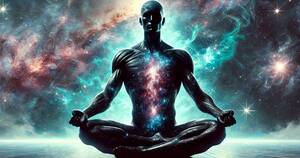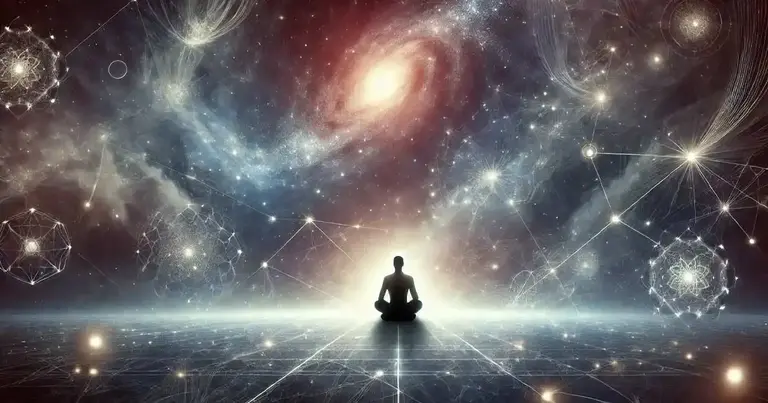How to Find God: A Logical and Spiritual Guide to Understanding Dharma
What if everything you’ve been told about God is only half the truth? Finding God isn’t about blind faith—it’s about understanding Dharma, consciousness, and your role in the universe. In this blog, we logically decode the essence of Dharma, explore how nature shapes our lives, and reveal the steps to true spiritual awakening. If you've ever questioned the meaning of life or sought deeper wisdom, this is for you.

I have found God—but not in the way you might think. You have been misled about His nature, and what I have discovered can make your life easier. However, understanding this truth is difficult because most people do not truly know Dharma.
Being Hindu, Muslim, or Christian is not Dharma. Dharma is rooted in compassion, which stands on five pillars: wisdom, patience, justice, love, and surrender. If you embrace these, your search for God will become effortless.
Step 1 – Wisdom
Imagine the universe as a vast system like an app. The app contains content, but it serves no purpose unless someone uses it. Similarly, the universe exists, but its existence is meaningful only when consciousness interacts with it. Consciousness perceives nature, and nature, in turn, provides intellect to help consciousness understand itself.
However, just as an app shapes user experience by showing tailored content, nature creates ego and sensory desires to keep consciousness engaged. This entraps individuals in cycles of pleasure and suffering, much like social media addiction. But is it the app’s fault, or is it the user’s lack of awareness? Similarly, nature provides for survival, but our uncontrolled cravings lead to suffering.
Step 2 – Patience
Just as quitting an addiction takes time, breaking free from nature’s illusions requires patience. Society conditions us to seek happiness in wealth, relationships, and pleasures, making it difficult to grasp a life beyond these desires. True satisfaction, however, comes not from external possessions but from inner realization. It seems hard to imagine, right?
What you think is an outcome of what you know. If you know quite a bit less, your thinking will be restricted. A wise person knows what he does not know and make efforts to learn more, this takes time as well.
Step 3 – Justice
To navigate this, one needs logic (Nyaya). Understanding that we cannot exist without nature helps us strike a balance—neither overindulging nor rejecting life’s essentials. This wisdom leads to disciplined living, reducing unnecessary consumption and material attachments.
Justice is more than punishment—it is about the ability to judge well. It requires the ability to reason using wisdom and patience. If someone wrongs you, there’s nothing to be upset about since their actions are coming from their ignorance and not wisdom and patience. This makes your brain impenetrable, and you don’t wander in useless thinking. Does that mean you should let everything go?
If someone has erred, you may help them know what the right thing is to do or distance yourself if they disagree to change, but if it is something that they can repeat and cause harm to someone else, they must face consequences. However, true justice does not extend punishment to the innocent, such as an offender’s family.
Step 4 – Love
Similarly, love is often misunderstood. People mistake attachment and desire for love. Love does not stem from a need of someone to fulfill the emptiness within, it does not need another person for sharing your emotions because if that is the case, then loving gold, new devices, dresses and shoes is equally justified.
A conscious person would live to unlock her unlimited capabilities by constantly working on self-improvement through wisdom, patience and reason. This will be identified as self-love.
But what do we call a person who borrows something and keeps it for himself? A thief. Similarly, we borrowed the knowledge from the world and spent it on loving ourselves. True love arises when consciousness recognizes itself in everything around and put similar efforts to help them rise to the path of light. Genuine love does not seek validation, appreciation, or rewards since it is an act of paying back your debt.
Step 5 – Surrender
Farmers toil to grow our food, Policemen and soldiers ensure our safety, and countless sanitation workers do what we disgust for our well-being. Realizing that life itself is borrowed leads to surrender.
A surrendered being does not hoard wealth or chase indulgence. Food and money become mere tools for repaying their debt. This selfless dedication fosters true compassion—not just an emotion, but an enlightened way of thinking that respects all living beings.
Step 6 – Compassion
Would there be food if trees didn’t exist, would there be trees if countless animals and insect didn’t help with germination and would there be us if the planet wasn’t in the condition it was? Truth is that life is interdependent on everything around and how selfish of humans to think itself superior to all and consume whatever it wants at the cost of destroying habitats of those animals, trees and insects.
Is it wise to kill the rat or mosquito that is searching for food when you can simply keep yourself and your food away from their reach using simple nets and containers?
The Nature of God
People ask, “Who created the universe?” But the question itself is flawed. There is no difference in the creator {Brahm} and the creation. God did not create the universe—He is the universe. Consciousness is like an ocean, and nature is its waves. Every being, from said prophets to ordinary humans, is a part of this vast existence. Just as a drop of water contains the essence of the ocean, you, too, are divine.
This realization is the essence of Aham Brahmasmi—”I am Brahm.” Those who understand this do not seek external validation or material pleasures; they live in peace, fulfilling their responsibilities without attachment.
Final Thoughts
If you truly wish to find God, stop searching outside. Understand the play of consciousness and nature, cultivate wisdom, and surrender to selfless service. This journey is not about abandoning life but about transforming it through awareness.


